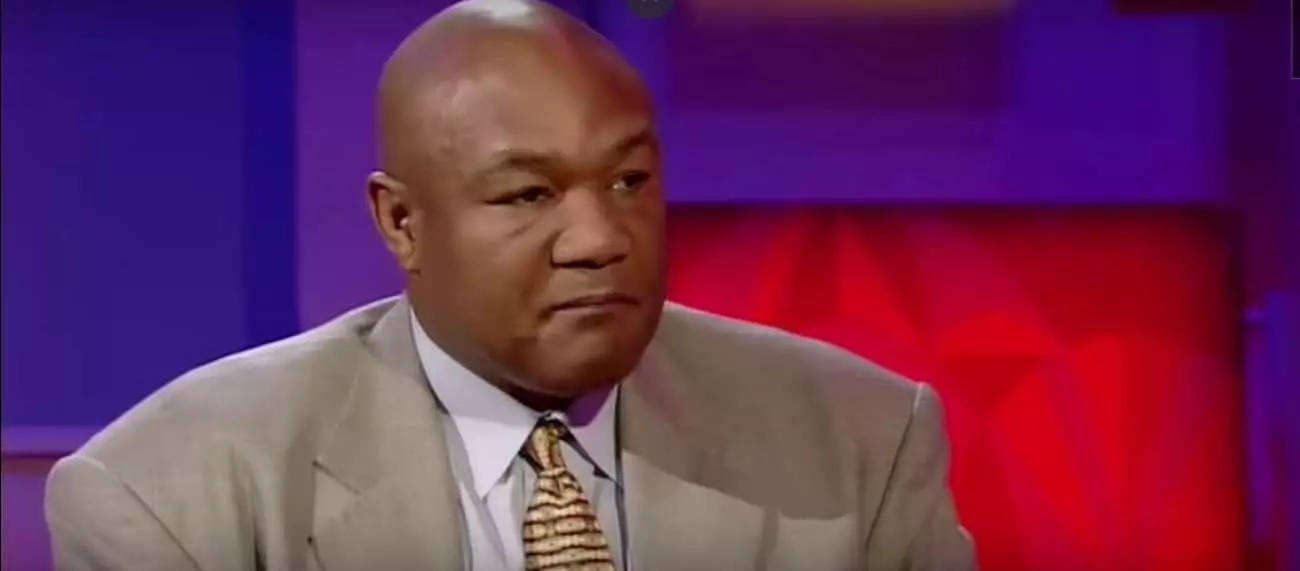On this day, we celebrate the 76th birthday of George “Big George” Foreman, a compelling figure in the world of boxing hailing from Marshall, Texas. Foreman’s life story is not just one of athleticism; it is a narrative of resilience, transformation, and unexpected triumph. Born into a world full of challenges, Foreman’s journey began not in a boxing ring but in the troubled streets, where he was a product of a troubled youth. Thanks to the Job Corps program initiated by President Lyndon Johnson, Foreman found himself entering a boxing gym, seemingly just another teen trying to shed some weight, but that visit would alter his life path forever.
Coming from a background where opportunities were scarce, Foreman embodied the spirit of determination. It was not long before he caught the notice of Doc Broadus, a trainer who saw potential in him. Starting to box in 1967, Foreman turned his early amateur experiences into a springboard for success. By 1968, he achieved the remarkable feat of winning an Olympic gold medal at the Mexico City Games, solidifying his place in the boxing world with an impressive (though modest) amateur record of 16 wins to just 4 losses. His victory was a pivotal moment in history, as it occurred against the backdrop of significant civil rights events, contrasting with the famous Black Power salute by fellow American athletes John Carlos and Tommie Smith.
Following his Olympic success, Foreman swiftly moved into the professional circuit, and while his initial journey was marked by conservative matchmaking, it did not take long for him to climb the ranks. His electrifying knockout of Joe Frazier in January 1973 remains one of boxing’s most unforgettable moments, as Foreman took down a revered champion in just two rounds. Expectations arose that he would be the heavyweight champion for years to come. However, the landscape of boxing is often unpredictable, and Foreman’s hero, Muhammad Ali, would soon shatter the heavy-handed illusion of invincibility that Foreman had built.
The infamous “Rumble in the Jungle” in 1974 would not only alter Foreman’s career trajectory but also deeply impact his psyche. The loss to Ali left him emotionally devastated, but it also marked only the beginning of an intriguing chapter in his life. Just when it seemed Foreman’s prowess might fade into obscurity, he delivered some of the most memorable contests of his earlier career, including the extraordinary slugfest against Ron Lyle. Yet, it was a surprising defeat to Jimmy Young that led to a dramatic ten-year hiatus from the sport.
Foreman’s hiatus from boxing was not a mere absence; it was a time of reflection and rejuvenation. In the late 1980s, Foreman’s unexpected comeback captivated audiences around the globe. Entering the ring again at a time when he had earlier counted himself out forever, he surprised critics and fans alike, demonstrating that age and past failures do not dictate one’s destiny. His return was driven by a desire to save his Youth and Community Center, showcasing a deeper purpose beyond just sport.
Rebuilding his boxing career from scratch, Foreman brought in the likes of Charlie Shipes and Archie Moore to guide him through this new phase. Against all odds, he emerged victorious once again, defeating Michael Moorer for the heavyweight title in 1994—a full 20 years after his infamous loss to Ali. This victory became an iconic moment in sports history, proving that the dream of a comeback could become a reality.
Today, George Foreman is not only celebrated for his accomplishments in the ring but also recognized for his entrepreneurship and philanthropy. After parlaying his boxing fame into a lucrative grilling business, he became a household name across America, enjoying an incredible financial windfall. More significantly, he has become a symbol of perseverance, triumphing over adversity.
As we reflect on the remarkable journey of George Foreman, it’s clear that his legacy extends far beyond the boxing glove. He stands as a testament to resilience, inspiring countless individuals to confront their challenges head-on. The remarkable transitions from troubled youth to Olympic champion, from heavyweight king to entrepreneurial success story, truly make George Foreman a global treasure—one worth remembering and celebrating today and for years to come.


Leave a Reply